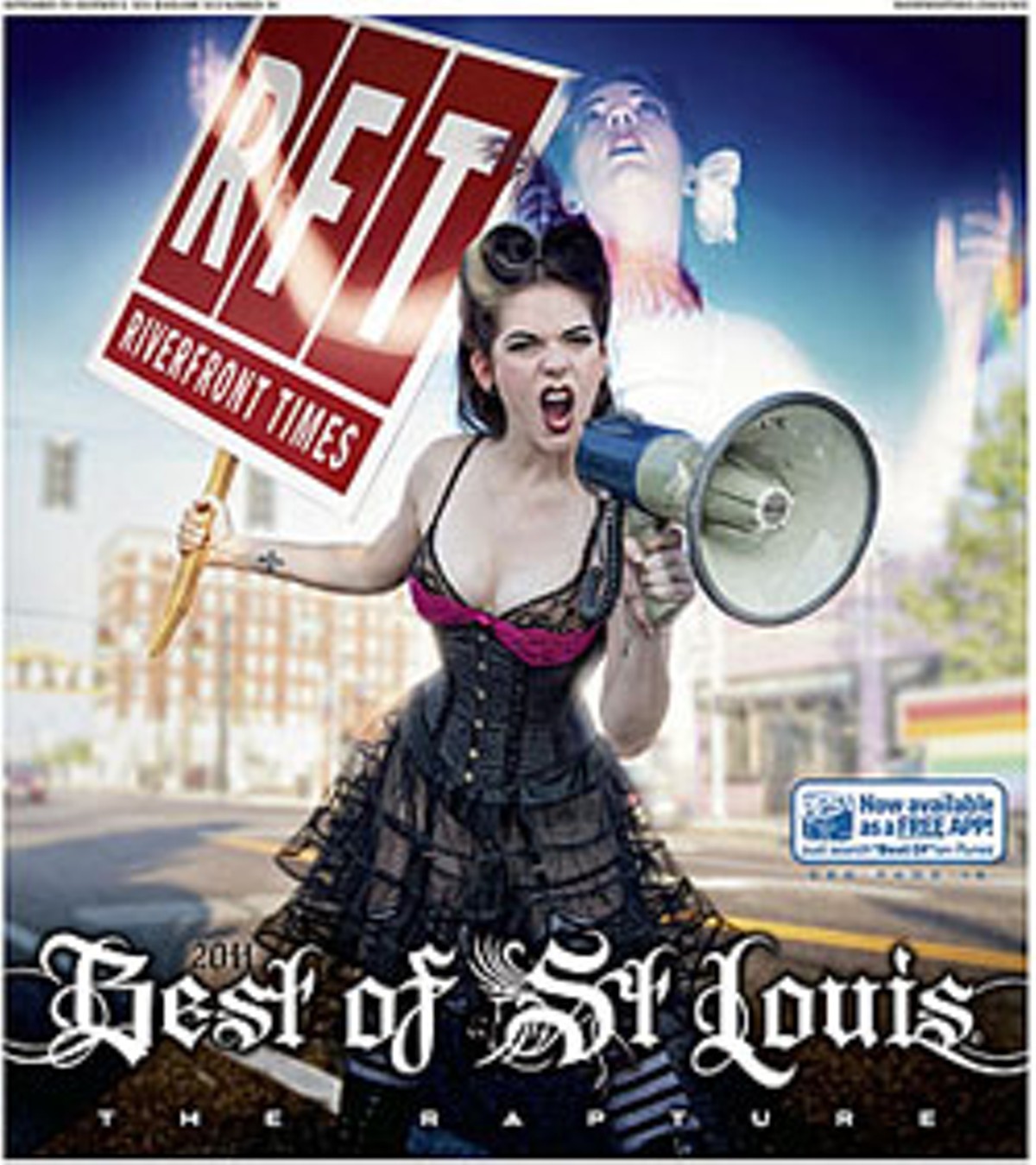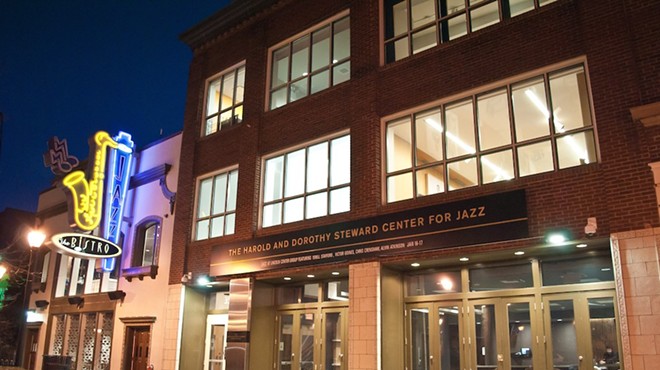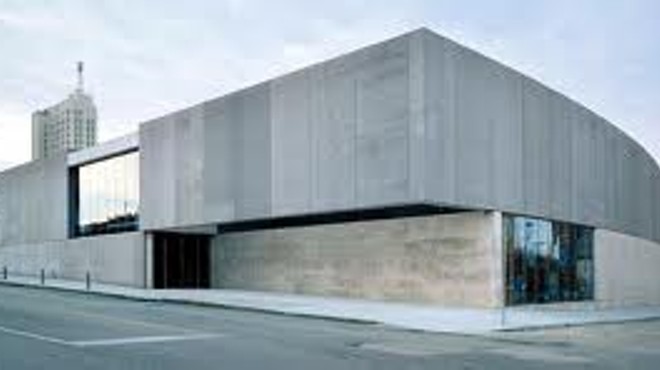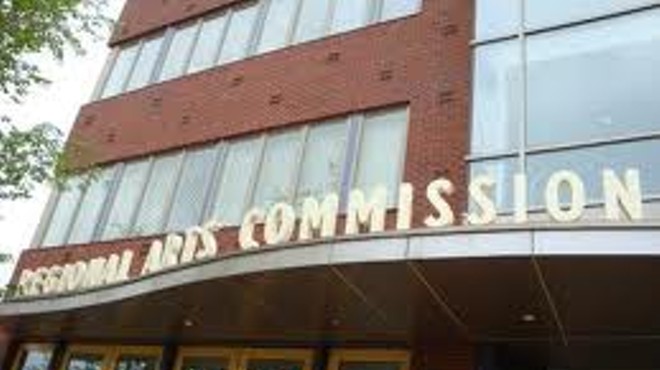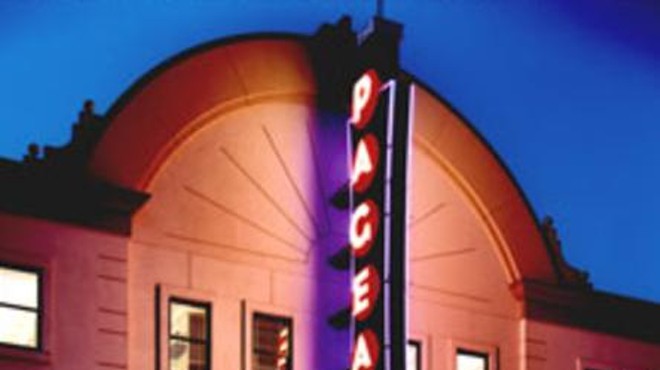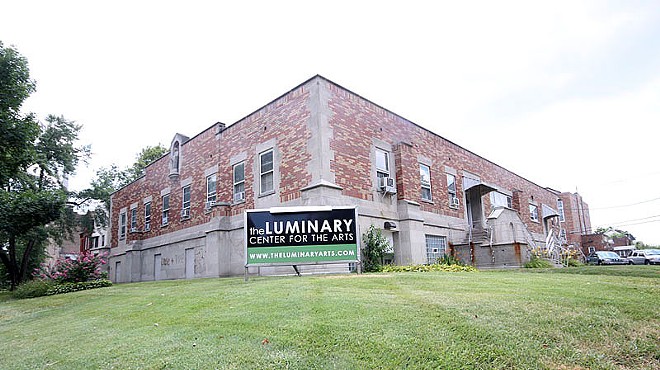The recent news that Jazz St. Louis is studying ways to expand or perhaps even replace the Bistro at Grand Center as its primary performance venue portends change, presumably for the better, for local jazz fans. For now, though, St. Louisans can be satisfied that the current version of Jazz at the Bistro already is considered one of the top jazz clubs in the country, as well as the best in town. The Bistro attracts top touring acts, books a careful yet reasonably diverse selection of local musicians and bands, and presents both in an atmosphere that's focused on music and encourages attentive listening. Jazz fans everywhere should have it so good.
It's always tempting to give this award to the band with the longest, punniest name, with bonus points for ironic pop-culture or sexual references. But local duo We're Wolf wins the prize for its very simplicity. Not only is the name short, to the point and nicely ironic (for there's nothing terribly rapacious about the pair's whimsical acoustic pop songs): It succeeds in acting as a triple entendre. It's a mythological predatory beast, a self-referential description and, if you take out the apostrophe, a past recollection. Plus, by making "wolf" the second word, We're Wolf differentiates itself from Wolf Parade, Wolf Eyes and every other wolf-oriented band out there. It has a nice "why didn't I think of that?" quality to it.
When the 75s bounced onto the scene in 2007, it was a pleasant anomaly indeed: a three-piece explicitly inspired by 1990s West Coast indie pop, especially the Aislers Set and Sacramento's legendary Tiger Trap. Laurel Mydock, a chemistry student by day, sang such bittersweet songs as "'I Wanna Kill My Boyfriend" and "Oh Tommy O." while drummer Scott Lasser and bassist Morgan Nusbaum churned out simple but powerful backup. Other than Bunnygrunt, it was hard to think of another local band mining the same territory. The group stayed together long enough to release one album, Extra Fancy, and two EPs, Basement Tapes and Stereo. Despite some out-of-town coverage, the 75s never toured beyond Kansas City and broke up last summer without acrimony (Lasser and Mydock are now married), but with a nagging sense of incompleteness. We'll never know the band's full potential.
Many young bluegrass bands require a pound of weed and an iPod full of Yonder Mountain String Band bootlegs just to get warmed up. The Local Gents needs only a single microphone. Preferring to perform in the classic one-mic formation of such bluegrass gods as Bill Monroe and Jim and Jesse, the five musicians — stratospheric tenor singer and banjoist Will Miskall, singer and guitarist Kevin Smith, mandolin player Michael Jonas, bassist Brian Johnson and virtuoso fiddler Ian Walsh — bob and weave their way through old and new material. It takes a seasoned but ambitious band to tackle such sacred ground as Monroe's "With Body and Soul." The Gents is one such band; together these pickers have more than enough chops and vision to preserve and smartly reshape what true-blue bluegrass is all about.
Whether the endpoint is St. Louis, Chicago, Memphis or somewhere else, the path of the blues inevitably seems to lead back to a starting point in Mississippi. Although he's made his home in St. Louis for most of his adult life, that's where Big George Brock is from, and the sounds of his home state still resonate in every note he sings and plays. One of a dwindling number of bluesmen of his generation still working, Brock occupies his own niche, with a sound both rougher and more idiosyncratic than such great Chicago bands as Muddy Waters, but more polished than the minimalist juke-joint combos still found in the deep South. Although he's unquestionably moving a bit slower as he closes in on turning 80, Brock is still a potent and attention-grabbing force when shouting the blues or blowing his harp, as he demonstrated with an impromptu version of "Got My Mojo Working" at the Old Rock House last September following his induction into the new St. Louis Blues Hall of Fame. He's still a draw on the festival circuit in Mississippi and elsewhere below the Mason-Dixon line, too; let's hope Big George will get his mojo working back here in St. Louis a few more times in 2012.
DJ Uptown has only been dominating the wheels of steel for a couple of years, which we find hard to believe given his prodigious skill on the decks. His career is hardly in its infancy, though — there are other DJs in town who have been spinning for two and three times as long as he has, without half the residencies to show for it. A member of the Basement Sound System DJ and producer collective, Jerry Hill used to be an intelligence agent in the Air Force (seriously). As DJ Uptown, he plays out at such high-profile bars as Atomic Cowboy, the Delmar Lounge and Novak's four and five nights a week and yet still finds time to be an amateur racecar driver. He's been tapped twice to participate in the Red Bull Thre3style DJ Battle — which has only happened twice in St. Louis — and his frequent sets around town run the gamut from top-40 ballsy electro smash-and-grabs to deep-crate digs through the finest of forgotten hip-hop. Play on, playa.
In an insular city like St. Louis, competition can breed contempt. In the even more insular music community, competition and contempt multiplied by alcohol can equal disaster. But sometimes not — and we were gratified to see a room full of electronic beat-heads come together earlier this summer without a shred of ill will in the whole place. Grouped into teams, such notable names as Jay Fay, Black Spade, Safety Words, Eric Hall and Adult Fur went head-to-head in an electronic round robin aptly titled Current, giving the audience a ten-minute taste of their ability and magicking an impressive, head-bobbing din on their respective gadgets and laptops. Part of the inaugural St. Louis Arts Project Conference, the collaboration was the first of its kind in recent memory. Good golly do we hope it happens again soon.
Spectacles have been a part of Elvis Costello's image from the very start of his 35-year-plus career — his black-rimmed specs practically carry his trademark. But the beloved entertainer brought an entirely different kind of spectacle when his Spinning Songbook tour came to the Pageant in early July. The premise was simple and the set was garish, as fans came to the stage to spin a giant red-and-yellow wheel marked with about 40 of his song titles. With equal parts huckster charm and game-show-host smarm, Costello relished his role as emcee, tearing through his peerless catalog with the energy of a much younger man. There were plenty of surprises — Eddie Vedder popped up to sing the Who's "Substitute," Costello covered both the Stones and the Beatles, and longtime fans were rewarded with a few choice deep cuts. And in the end, it was the songs — not the spectacle — that left the biggest mark.
Firecracker's striking color pairings and retro imagery help make the shop one of the most interesting players in the St. Louis design community. The aesthetic was never better than on its purple-and-gray, math-meets-murder poster for Times New Viking's show at the Billiken Club last October. All of Firecracker's adverts for the venue over this past year reveal the same aesthetic as the store's mid-century modern furniture while doubling as an arts-and-craft project: Using online instructions, you can fold the posters into art books after their display purposes are over.
Last year, the Luminary Center for the Arts teamed up with the Downtown Partnership to bring club-bound concertgoers back to downtown for a series of free concerts: the Post Performances. The Luminary is making a name for itself with thoughtfully curated events, and the Post Performances were no exception. Pairing local artists with touring and local musicians in the gorgeous outdoor setting of the Old Post Office Plaza was a stroke of genius. The $8.8 million plaza, with its sculptural art and the soothing sounds of a waterfall, makes for a dreamy backdrop. The series focused almost entirely on such local musicians as Phaseone and Black Spade last summer, while this year they've grown the operation to include such indie up-and-comers as Oberhofer, High Places and My Brightest Diamond.
A manic DIY ethos powers the Vondrukes. That and a whole lot of Uncle Tupelo — or at least the earliest, proto-punk version of the legendary Belleville band. It's a reference the Vondrukes will have to live with, even as these ill-mannered rockers slash and booze and wallow in gloriously over-the-top classic rockisms — in a single song like "RDP" it throws in Triumph head-banging, a Led Zep drum solo, Beatles-ish harmonic teases and Night Ranger-ready guitar wanking — and weird bouts of lyrical paranoia. That's not just the weed talking; punkabillies really are an endangered species. So we're lucky to still have rock & twang animals like the Vondrukes around.

